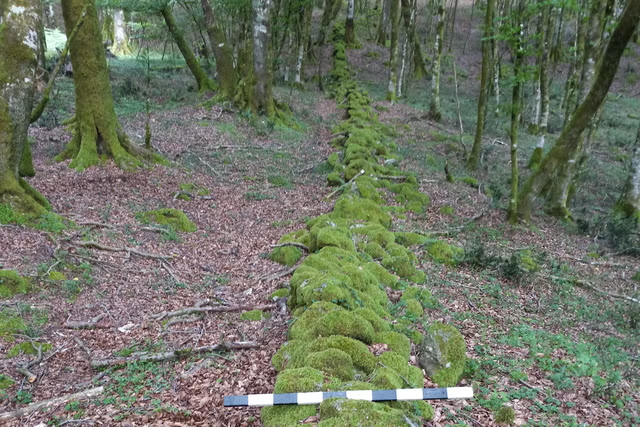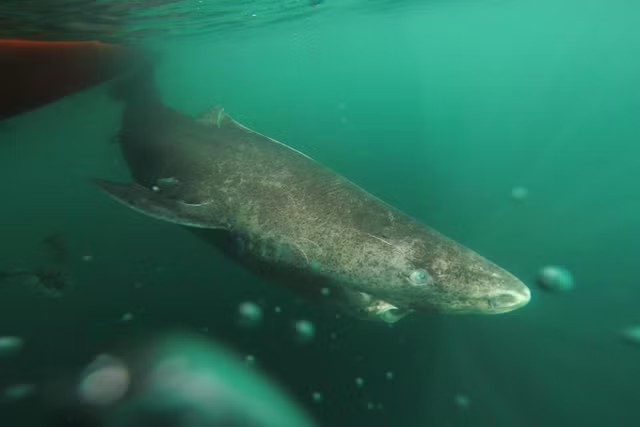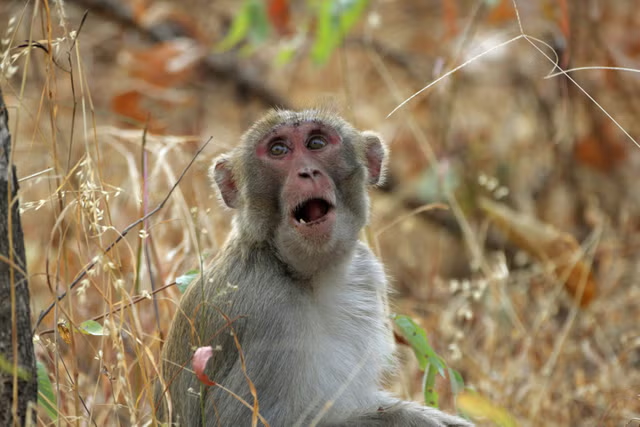A tiny orange-colored bat is being sold as a decoration, an act that could be tanking its already declining population.
The bats, known as painted woolly bats or Kerivoula picta, are listed as "near threatened" on the IUCN Red List. However, they are regularly sold online as Halloween decor, jewelry or trinkets, according to a new paper in the European Journal of Wildlife Research.
These tiny bats sell for around $60 each, and despite not being native to the U.S., are largely imported and sold by people in the country.
"These bats are not from the United States, but they're being sourced from across Asia and then brought here and used as décor," study author Nistara Randhawa, a data scientist and epidemiologist at the University of California, Davis, said in a statement. "With this study, we hope to raise awareness and propel the conservation of this species."
According to the study, 856 listings were found for dead bat décor on Amazon, eBay, and Etsy over the Halloween and Christmas period in 2022, 215 of which were painted woolly bats. Some 62 percent of vendors were in the U.S., with Tennessee alone accounting for 45 percent of K. picta listings, and Illinois, California, and Florida making up 27.5 percent of listings of the declining bat.
"We're talking about 284 distinct individuals found over just a three-month period," study co-author Joanna Coleman, an assistant professor at City University of New York-Queens College and co-chair of the IUCN's Bat Trade Working Group, said in a statement. "That doesn't include all the others sold on websites and physical shops year-round across the world. Because these bats are quite scarce on landscapes, we are concerned that hunters might be systematically going out and removing every individual they see."
K. picta measures between only 1 and 2 inches long, with a bright orange body and characteristic orange and black wings. It is native to China, India, Bangladesh, Cambodia, Indonesia, Laos, Myanmar, Nepal, Sri Lanka, Thailand and Vietnam. These critters live for about 10 years, and only have one baby at a time, meaning that they cannot rapidly replenish their populations if overharvested. Already "near threatened" due to a declining population, the sale of these bats online is expected to cause a further drop in numbers.
These bats are dead when sold online. They are arranged into a number of macabre decorations and fashion pieces, ranging from being framed to incorporated into a hairpiece. According to the paper, about 20 percent of listings for these bats claim that they were "ethical" or "sustainable," with some even saying that they were bred in captivity or died of natural causes. However, these bats aren't bred in captivity, meaning that all listings of this bat would have been harvested from their native habitats.
Conservationists have been aware of and concerned about the trade of this bat for years, but this paper marks the first time that the scale of their sale and the misleading language used by vendors has been formally studied.
"Bat populations are declining worldwide, and K. picta is but one of the many unique bat species affected by ongoing global biodiversity loss," Randhawa said. "They are incredibly important to protect, not least because of the vital ecosystem services bats provide. K. picta should be roosting under the banana leaves of its natural habitat, not hanging dead on a wall as décor."
The researchers hope that K. picta will soon be included in the Convention on International Trade in Endangered Species of Wild Fauna and Flora (CITES) Appendix I, granting the species legal protection from international trade.
"Clearly, steps to protect this species from such senseless overexploitation are urgently needed," study co-author Chris R. Shepherd, the executive director of Monitor Conservation Research Society, said in another statement. "We strongly recommend that effective legal protection in range countries and consumer countries be put in place, and that international trade be monitored and controlled."
They also hope to have these bats protected in the U.S. under the Endangered Species Act.
"We have a real chance to save these striking little bats before a frivolous décor trend picks up too much steam and pushes them closer to becoming endangered. We need the U.S. government to act quickly," Dianne DuBois, a staff scientist at the Center for Biological Diversity, said in the statement. "This study provides strong evidence of the threat U.S. consumers pose to these unique and beautiful bats, likely without even knowing it. We have to prevent any more painted bats from being hung on a wall and help them recover and flourish in the wild where they belong."
Do you have a tip on a science story that Newsweek should be covering? Do you have a question about bats? Let us know via science@newsweek.com.
Disclaimer: The copyright of this article belongs to the original author. Reposting this article is solely for the purpose of information dissemination and does not constitute any investment advice. If there is any infringement, please contact us immediately. We will make corrections or deletions as necessary. Thank you.



